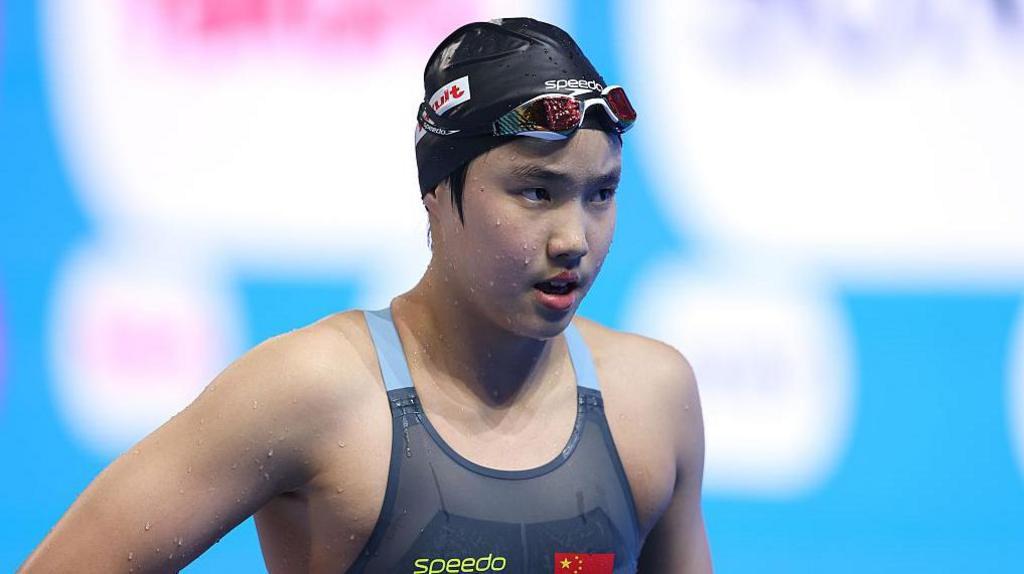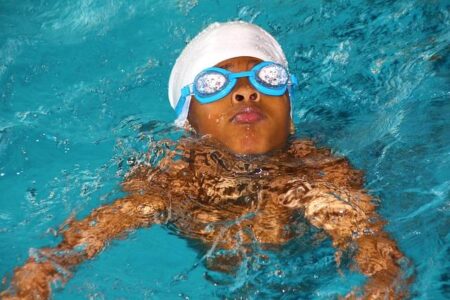Thirteen-year-old swimming prodigy Yu Zidi has shattered the Asian record in the 200-meter individual medley, clocking an impressive 2:07.41 to surpass Ye Shiwen’s longstanding mark set in 2012. Yu’s breakthrough performance signals a new era in Asian competitive swimming, as the young athlete not only eclipsed a decade-old record but also announced her emergence on the international stage. This milestone achievement highlights the rising talent within the region and sets the tone for an exciting future in the sport.
Yu Zidi Shatters Asian 200 IM Record in Stunning Performance
At just 13 years old, Yu Zidi stormed the pool to deliver a breathtaking performance that rewrote the records books. With a blistering time of 2:07.41 in the 200 Individual Medley, Yu obliterated a decade-old Asian record previously held by Olympic champion Ye Shiwen. The new mark not only signals the arrival of a prodigious talent but also raises the bar for young swimmers across Asia and the world.
Yu’s race was a masterclass in strategic pacing and versatile technique, showcasing dominance in all four strokes. Key highlights from the race include:
- Butterfly leg: Quick off the blocks, setting an early lead
- Backstroke split: Smooth and technically flawless, maintaining momentum
- Breaststroke surge: The turning point where Yu expanded the lead
- Freestyle finish: Powerful and unyielding, sealing the record-breaking victory
| Swimmer | Record Time | Event | Year |
|---|---|---|---|
| Yu Zidi | 2:07.41 | 200 IM | 2024 |
| Ye Shiwen | 2:08.53 | 200 IM | 2012 |
Breaking Down the Technique Behind Yu Zidi’s Record-Breaking Swim
Yu Zidi’s groundbreaking 200 IM performance was a masterclass in technical precision and transitional efficiency. From the start, her underwater dolphin kicks off each wall demonstrated remarkable propulsion, giving her a crucial edge in the backstroke and breaststroke legs. Observers noted her stroke rate balance: a finely tuned blend of power and endurance that avoided the typical fatigue pitfalls in the latter half of the race. Her head position remained consistently low, minimizing drag and maintaining optimal streamline, while her breathing technique was rhythmically timed to sustain oxygen intake without sacrificing speed.
- Butterfly: Explosive yet controlled, maximizing momentum into the backstroke.
- Backstroke: Smooth arm rotation with strong pull phases to maintain lead.
- Breaststroke: Compact, efficient kicks paired with quick transitions minimizing deceleration.
- Freestyle: High-tempo finish with sustained power output and precise turns.
| Stroke | Average Stroke Rate (spm) | Key Technical Focus |
|---|---|---|
| Butterfly | 56 | Strong core engagement for propulsion |
| Backstroke | 52 | Minimal shoulder elevation |
| Breaststroke | 38 | Quick transition kicks |
| Freestyle | 62 | High stroke efficiency |
Throughout the race, Yu’s transitions between strokes displayed flawless timing, a testament to her rigorous training and race strategy. Particularly impressive was her ability to maintain rhythm while switching muscle groups rapidly, a challenge that often costs swimmers precious seconds. This advanced technique, coupled with a mental focus that belied her age, allowed her to not just match but decisively surpass Ye Shiwen’s iconic 2012 Asian record. Coaches and analysts alike are now scrutinizing her split times, recognizing that Yu’s technique could herald a new era in medley swimming for Asia.
What Coaches Recommend for Young Swimmers Inspired by Yu Zidi’s Success
Coaches observing Yu Zidi’s breakthrough performance emphasize the importance of early technique development combined with balanced training intensity. They stress that young swimmers should focus on mastering the fundamentals of all four strokes before specializing, much like Yu’s well-rounded approach to the Individual Medley. Strength conditioning and flexibility remain key priorities, enabling athletes to handle the demands of rigorous IM events without injury. Many experts also advocate for integrating mental resilience training, highlighting how Yu’s calm composure under pressure played an essential role during her record-breaking swim.
Training regimens recommended for promising swimmers inspired by Yu’s success incorporate diverse elements, including:
- Varied Sets: alternating short sprints with longer aerobic swims to build endurance and speed simultaneously
- Technique Drills: specific focus on turns and transitions, which can significantly affect IM race times
- Rest and Recovery: planned breaks and active recovery days to prevent burnout and sustain performance gains
To illustrate, here’s a typical weekly outline advised by coaches for young IM swimmers:
| Day | Focus | Key Activity |
|---|---|---|
| Monday | Endurance | Long steady-state swims, technique drills |
| Wednesday | Speed & Power | Short sprints, explosive starts, turns practice |
| Friday | IM Stroke Focus | Stroke-specific drills and transition refinement |
| Saturday | Recovery & Flexibility | Yoga, stretching, light swim |
In Retrospect
Yu Zidi’s astonishing performance not only rewrites the record books but also signals the arrival of a new swimming prodigy on the Asian stage. At just 13 years old, her remarkable 2:07.41 finish in the 200 IM has surpassed Ye Shiwen’s long-standing mark from 2012, setting a high benchmark for the next generation of swimmers. As the swimming world takes note, all eyes will be on Yu’s future competitions to see how far this rising star can go.





